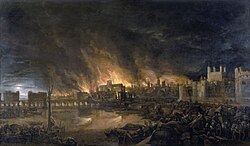| Years served | Name | Notes |
|---|
| 1274–1306 | Ralph Crepyn, alias 'Ralph de Alegate' | Served as "clericus" or "common clerk" of the city with an absence due to serious injury and Royal inquest from 1285 to 1286 due to the murder of his assailant. |
| 1284–1286 | John de Bauquell, aka Batequell, Banquell and Bankwell | Served from 21 November 1284 to 1286 in absence of Ralph Crepyn. |
| 1307-???? | William [last name unreadable] | aka "clerk de la Gyalle" |
| 1311–1335 | Hugh de Waltham | First known elected Clerk on 20 November 1311. |
| 25/1/1335‡-c. August 1335 | Roger de Depham | Second shortest term in office. |
| 29/8/1335‡–1354 | John de Bourne | |
| 1364?-???? | John Lucas | |
| 7/9/1368‡–1375 | Henry de Padingstone | |
| 10/8/1375‡–1399? | Henry Perot | |
| 1399?–1417 | John Marchaunt | First known to be granted a dwelling and pension (£10 per year) upon retirement. |
| 20/4/1417‡–1438 | John Carpenter | Member of Parliament (MP) 1425, 1437–1439 |
| 4/10/1438‡–1446? | Richard Barnett | |
| 18/11/1446‡–1461 | Roger Spicer, alias Tonge | First known to be dismissed from his office for offences and rebellions against King Edward IV on 5 August 1461. |
| 2/10/1461‡–1490 | William Dunthorn | |
| 9/3/1490‡–1510 | Nicholas Pakenham | |
| 16/7/1510‡–1514 | Walter Stubbe | |
| 20/6/1514‡–1533 | William Paver | First known to have committed suicide while in office |
| 1533–1540 | Thomas Ryshton, or Rysshton | Admitted 13 May 1533, granted annual pension and livery. |
| 1540–1570 | William Blackwell | Admitted 10 July 1540. |
| 1570–1574 | Anthony Stapleton | Admitted 24 July 1570 |
| 1574–1613 | William Sebright | Admitted 25 May 1574. First known to have a deputy (Richard Langley) admitted to assist in office. |
| 1613–1642 | John Weld | Admitted 27 April 1613. His deputy was Robert Michell. He was later knighted for service to the Crown. |
| 1642–1649 | Robert Michell | Succeeded to office 15 September 1642 and confirmed 27 October 1642. First Deputy to assume office when required. [13] |
| 3/7/1649‡–1660 | John Sadler | First known to be suspended from office (on 4 September 1660), then first to have suspension lifted (on 6 September 1660). He is the first known to be declared incapable of continued service (on 18 September 1660) and retired for cause. |
| 1660–1666 | Sir John Weld | Admitted 21 September 1660, first to serve two separate terms of office. His deputy (William Avery) was to succeed him on his death per contract. |
| 1666–1672 | William Avery | Admitted 12 November 1666. |
| 9/2/1672‡–1690 | William Wagstaffe | |
| 1690–1700 | John Goodfellow | Elected 17 February 1690/91 |
| 2/7/1700‡–1705 | Henry Ashurst | |
| 16/11/1705‡–1717 | James Gibson | |
| 9/5/1717‡–1724 | Randolph Stracey | |
| 1724–1737 | Thomas Jackson | Elected 19 March 1723/24 |
| 1737–1757 | Miles Man | First recorded "Clerk" to the Town Clerk to succeed as Town Clerk upon death, he was then elected 13 July 1737. |
| 10/5/1757‡–1774 | Sir James Hodges | Knighted c. 1760. |
| 1774–1801 | William Rix | First known Clerk to the Town Clerk to officiate during vacancy of illness of Town Clerk. He was then elected 25 November 1774 |
| 1801-1801 | Edward Boxley | Former "principal clerk" appointed to fill in during vacancy on 2 September 1801 to 15 December 1801. Shortest term in office |
| 15/12/1801‡–1825 | Henry Woodthorpe, Sr. | First to have his son (Henry Woodthorpe, Jr.) to be his "principal assistant" upon election then to be his appointed deputy on 27 February 1818 |
| 6/10/1825–1842‡ | Henry Woodthorpe, Jr. | First son to succeed his father in office. "The Remembrancer" appointed to officiate during vacancy of Town Clerk |
| 23/6/1842‡–1859 | Henry Alworth Merewether | |
| 10/2/1859‡–1873 | Frederick Woodthorpe | Son of Henry Woodthorpe, Jr. [14] |
| 17/7/1873‡–1902 | Sir John Braddick Monckton | Knighted 1880. The "Remembrancer" appointed to officiate during vacancy of Town Clerk |
| 1/5/1902‡–1935 | Sir James Bell | With effect from 1 June 1902. Knighted 1911 |
| 1935–1946 | Alfred Thomas Roach | Elected 13 June 1935. The "Comptroller and City Solicitor" (Anthony Frederick Ingham Pickford) appointed to officiate during vacancy of Town Clerk from November 1946 |
| 1946–1953 | Sir Anthony Frederick Ingham Pickford | Elected 27 February 1947 with effect from 28 November 1946. Knighted 1949 |
| 1954–1974 | Sir Edward Henry Nichols | Elected 22 October 1953 with effect from 1 January 1954. Knighted June 1982 |
| 1974–1982 | Stanley James Clayton | With effect 1 April 1974 |
| 1982–1991 | Geoffrey William Rowley | With effect 2 September 1982 |
| 1991–1995 | Samuel Jones | With effect 23 May 1991 |
| 1996–1999 | Bernard Peter Harty | No election date given |
| 1999–2003 | Tom Christopher Simmons | No election date given. Former Deputy Town Clerk |
| 2003–2012 | Chris Duffield | Served from September 2003 to 2012. |
| 2012–2022 | John Barradell | Served February 2012 to 31 December 2022. Formerly Chief Executive of Brighton & Hove City Council and Deputy Chief Executive of Westminster City Council. |
| 2023–present | Ian Thomas | Appointed effective February 2023. Former Chief Executive of the Royal Borough of Kingston upon Thames. [8] |


